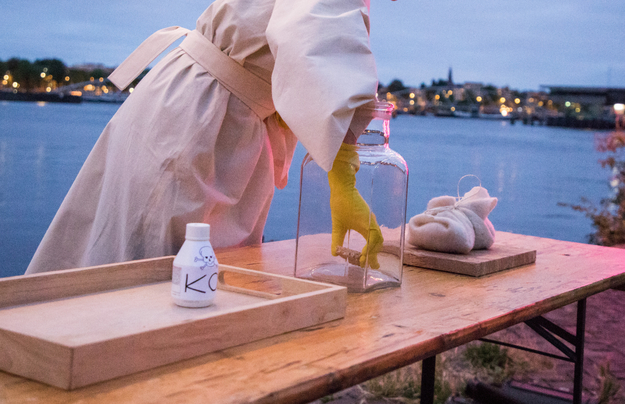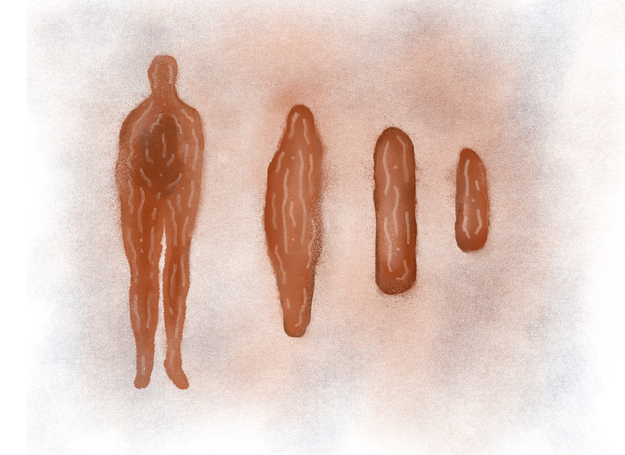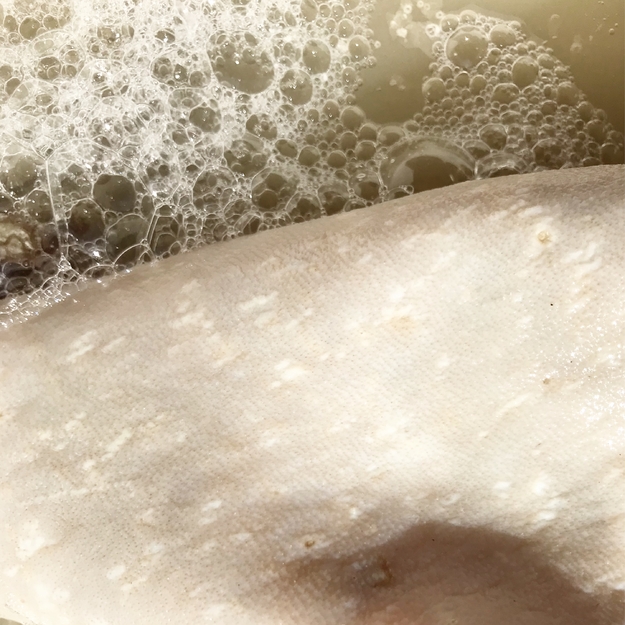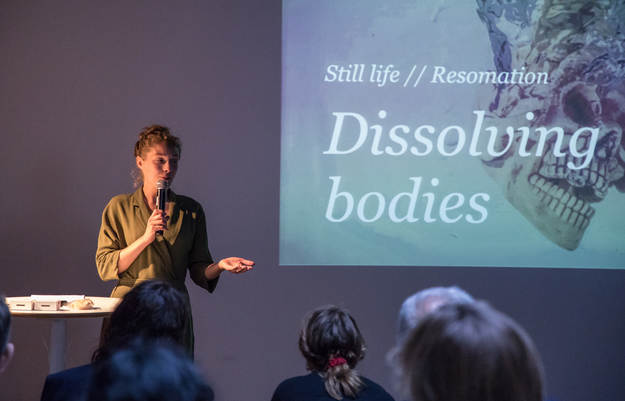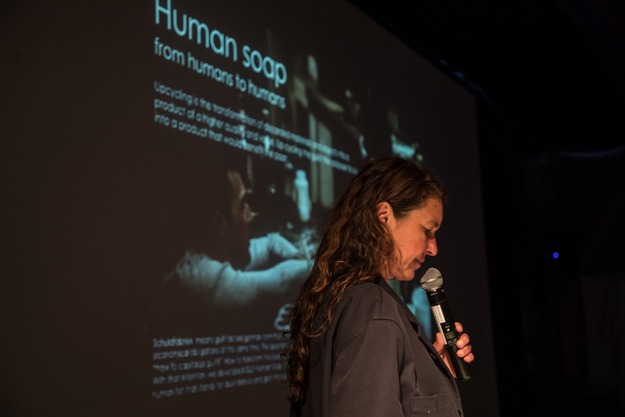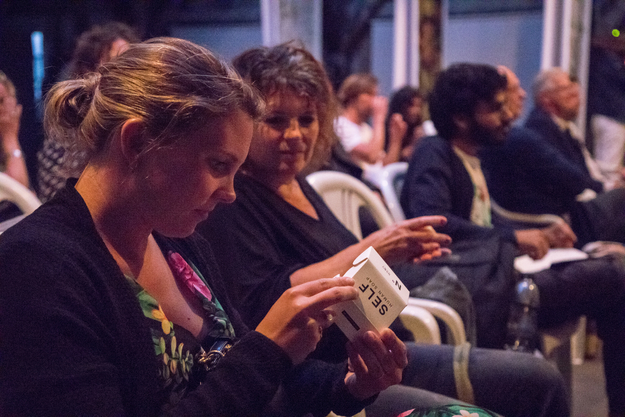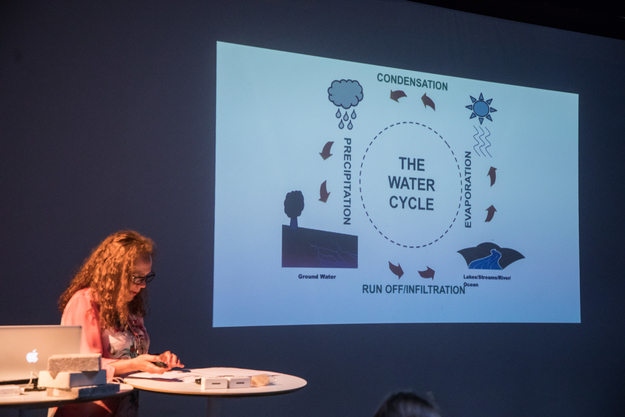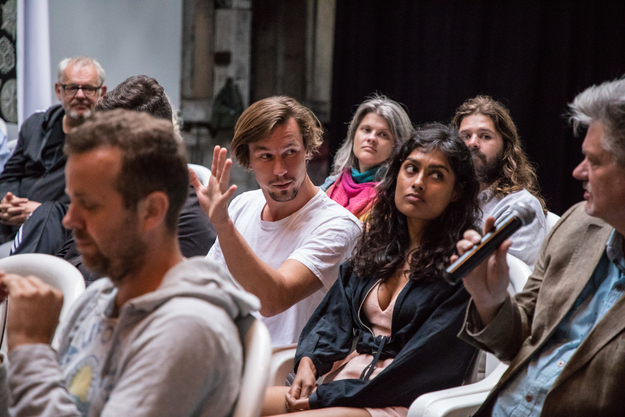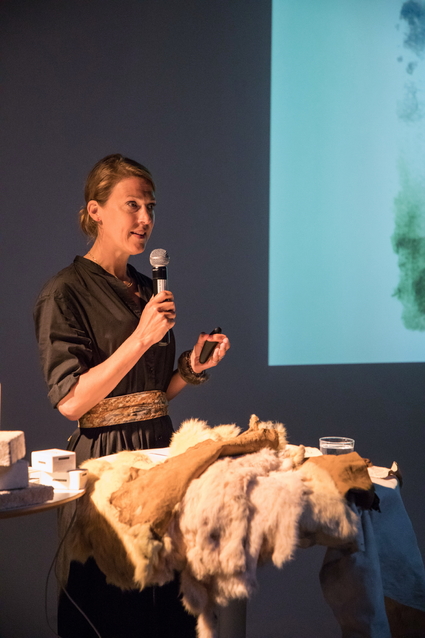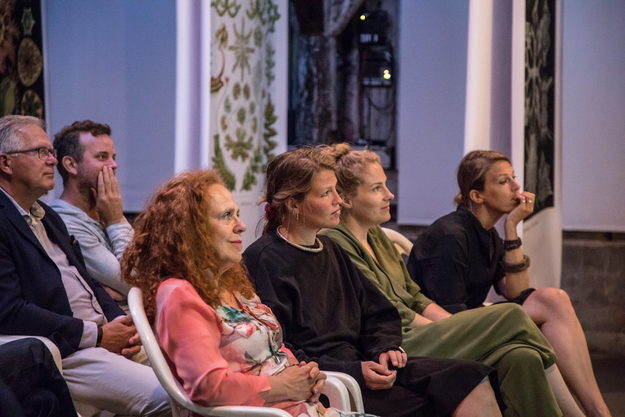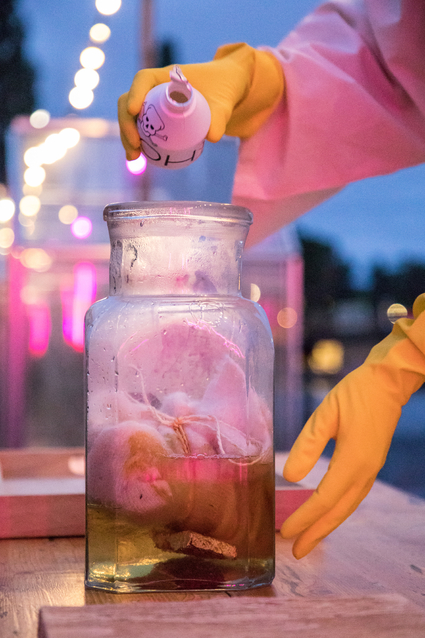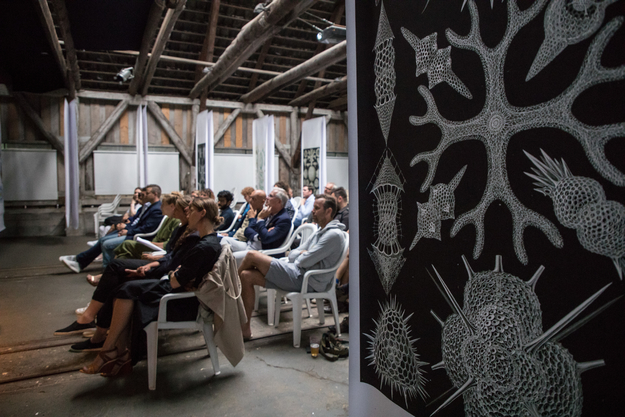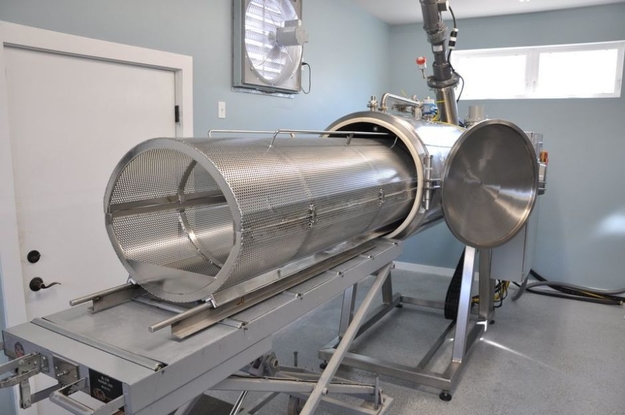Alkaline hydrolysis is a process that uses water and potassium hydroxide under high pressure and high temperature to reduce the body to its basic elements, mainly amino acids. Bones and teeth will not dissolve and the remains will be returned to the relatives. Titanium hip joints and breast implants will remain intact.
This evening, hosted by funeral director and Still Life curator Susanne Duijvestein, we will deep dive into this resomation process. We invited Sabrina Franken, COO of funeral company Yarden, to introduce resomation and explain the advantages compared to the current options. Dutch taxidermic artist Amber Veel will share her research on skin, and present some ideas of protein-based coffins and shrouds. And again, we will start a small experiment to see how the alkaline hydrolysis process works.
Susanne Duijvestein
After eleven years in cooperative banking, Susanne Duijvestein switched into funeral business. Being young, progressive and independent, she reflects on the ethics and aesthetics in this world, but she also likes to reflect on how we relate to our own transience, what we eventually leave behind on this planet and how we can reclaim a non-commercial funeral culture again. Susanne is curator Pro Mortem at Mediamatic.
Sabrina Franken
Sabrina Franken is Chief Operational Officer of Yarden, one of the biggest Dutch funeral companies. Yarden started investigating alkaline hydrolysis in 2011 as an alternative for burial and cremation and took a pioneering role, resulting in a proposed amendment in the law in January 2019.
Amber Veel
Amber Veel is an artist working on skinning, tanning and taxidermy. Before she went to the Gerrit Rietveld Academy, she worked as a district nurse and was always fascinated about skin, as an entrance to get a grip on to our existence in a complex world. The past years, Amber has specialized in plant-based tanning.
Liza Witte
Liza Witte is a product designer and "3D storyteller ." She uses traditional techniques and different materials to create a personal story. Witte gives soapmaking workshops at Mediamatic and will talk about transforming fat into soap.
Information
Still Life: Resomation, Saponification and Taxidermy
Wednesday, the 26th of June
Start 20:30
Mediamatic Biotoop, Dijksgracht 6, Amsterdam
Tickets: Full price €7,50 | Discount €5,25* | +€2,50 at the door | (including €1 administration fee)
*We give a discount to students and artists. If this applies to you we will ask to see your kvk nr/portfolio or student card for this option. For questions please send an email to mail@mediamatic.nl.
You will receive a 25% discount on our 3-course menu at Mediamatic ETEN upon presentation of your ticket!
(only valid on day of event)
